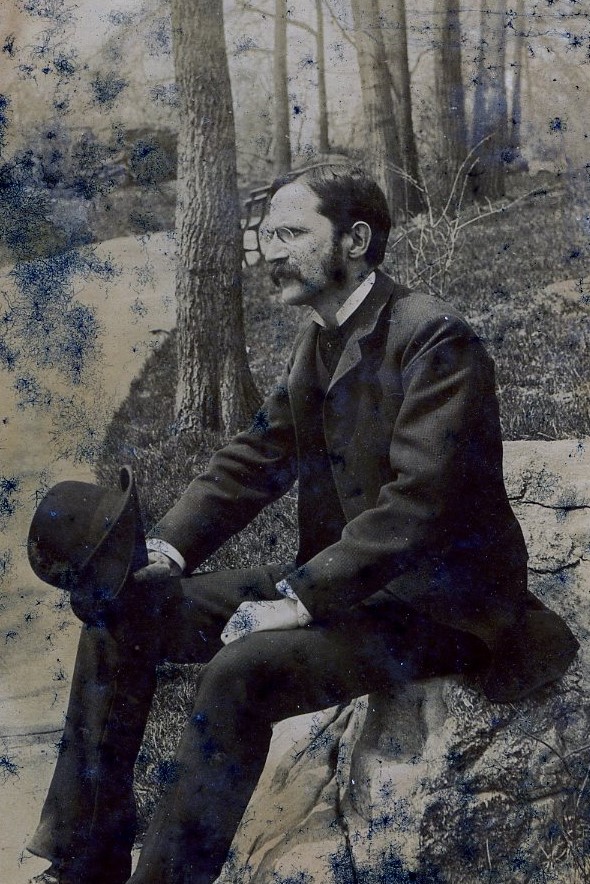Railway Business/Financial
Centurion, 1896–1925
Born 9 January 1847 in Philadelphia, Pennsylvania
Died 18 November 1925 in New York (Manhattan), New York
Buried Woodlands Cemetery , Philadelphia, Pennsylvania
, Philadelphia, Pennsylvania
Proposed by Elihu Root and Birdseye Blakeman
Elected 6 June 1896 at age forty-nine
Archivist’s Note: Treasurer of the Century Association, 1904–1908
Proposer of:
Seconder of:
Century Memorial
As with many another member of the Century, past and present, recollection will especially picture William M. Spackman in the group which used, eight years ago, to gather in the reading-room or the Graham Library of a wartime afternoon to discuss the news from Washington or the battle-front. Spackman was never a leader in the conversation; he would stretch himself out in one of the chairs on the outskirts of the group, listening with his head leaned meditatively back, joining in the talk when it touched his own experience and convictions. Those convictions were strong and very conservative. Spackman disliked innovation; the world as he saw it was a pretty good world. If left alone by the political and social experimenters, it would be a still better one, and a strain of pessimism sometimes appeared in his view of the day’s events when they seemed to foreshadow change in the existing order. But he was rarely a pessimist over the longer future; his absolute confidence in the defeat of Germany, for instance, always struck a cheerful note in the war-time exchange of conjecture and prediction. Even when he gave voice to his own dislike at the political tendencies of the hour, it was never unreasoning complaint or futile lamentation, but the thoughtful judgment of a thorough-going conservative who believed it better to bear those ills we had than to fly to others that we knew not of.
Spackman’s career had been curiously varied. Graduating from Harvard with the university’s highest honors, he had studied law; at one time had even prepared for the ministry, to which perhaps his Quaker ancestry predisposed him. Convinced no doubt of his own real bent in life, he entered the railway business, in the finances of which he long played a useful part. Later in life, his financial capacity was recognized by the entrusting of numerous estates to his administration and by his official service as officer of a large New York savings bank. The Century, of which he was long the Treasurer two decades ago, had equal reason to recognize his insight and common sense in dealing with its practical problems.
Alexander Dana Noyes
1926 Century Association Yearbook

